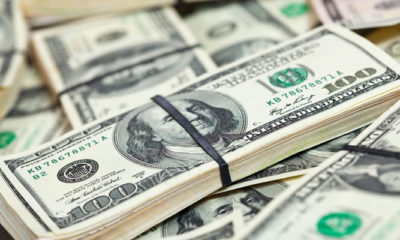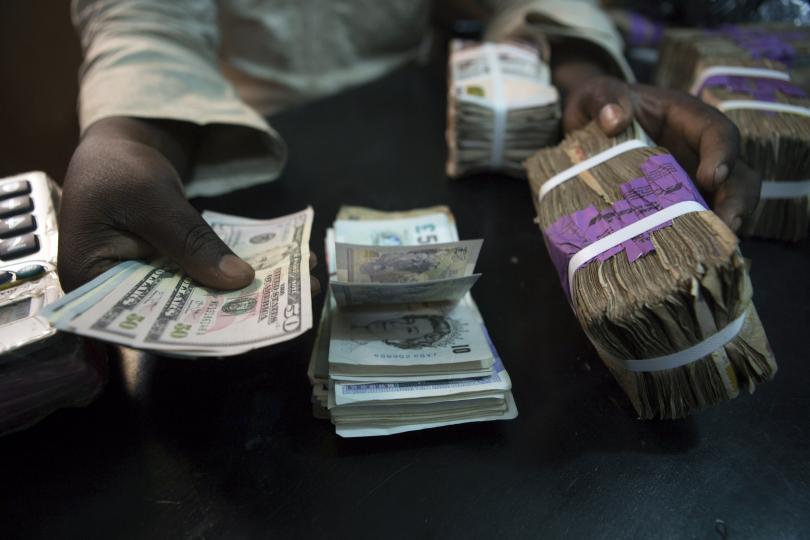Nigerian Naira depreciated by 5.3% against the US dollar as concerns over declining foreign reserves raise questions about the central bank’s ability to sustain liquidity.
The local currency has now declined for the third consecutive day since the Naira retreated from its three-month high on Friday shortly after Bloomberg pointed out that the Naira gains were inversely proportional to foreign reserves’ growth.
According to data from Lagos-based FMDQ, the naira’s value dropped precipitously, halting its recent impressive performance.
The unofficial market saw an even steeper decline of 6%, extending the currency’s retreat over the past three trading days to a staggering 17%.
Abubakar Muhammed, Chief Executive of Forward Marketing Bureau de Change Ltd., expressed concerns over the sharp decline, highlighting the insufficient supply of dollars in the market.
Muhammed noted that despite a 27% increase in traded volume at the foreign exchange market on Monday, the supply remained inadequate, forcing the naira to soften further while excess demand shifted to the unofficial market.
The dwindling foreign exchange reserves have been a cause for alarm, with Nigeria’s gross dollar reserves steadily declining for 17 consecutive days to reach $32 billion as of April 19, the lowest level since September 2017.
This worrisome trend has raised questions about the adequacy of dollar inflows to rebuild reserves, especially after the central bank settled overdue dollar obligations earlier in the year.
Samir Gadio, Head of Africa Strategy at Standard Chartered Bank, pointed out that while the naira had been supported by onshore dollar selling, the rally was likely overextended.
Gadio warned that the emergence of a dislocation in the market, with domestic participants selling dollars at increasingly lower spot levels was unsustainable and necessitated a correction.
The central bank’s efforts to stabilize the naira have been evident with interventions aimed at improving liquidity.
However, the effectiveness of these measures remains uncertain, particularly as the central bank offered dollars to bureau de change operators at a rate 17% below the official rate tracked by FMDQ.
Analysts, including Ayodeji Dawodu from Banctrust Investment Bank, foresee further challenges ahead, predicting that the naira will likely stabilize around 1,500 against the dollar by year-end.
Dawodu emphasized the importance of stabilizing the currency to attract strong foreign capital inflows, underscoring the significance of sustainable monetary policies in Nigeria’s economic recovery.
As Nigeria grapples with the repercussions of the naira’s depreciation and declining foreign reserves, policymakers face mounting pressure to implement measures that ensure stability and foster confidence in the economy.
The road ahead remains uncertain, with the fate of the naira intricately tied to Nigeria’s ability to address underlying economic vulnerabilities and bolster investor trust.




 Forex3 weeks ago
Forex3 weeks ago




 Naira2 weeks ago
Naira2 weeks ago
 Billionaire Watch2 weeks ago
Billionaire Watch2 weeks ago






 Naira2 weeks ago
Naira2 weeks ago




 Naira4 weeks ago
Naira4 weeks ago






 Naira2 weeks ago
Naira2 weeks ago


 Naira1 week ago
Naira1 week ago
 Banking Sector4 weeks ago
Banking Sector4 weeks ago















